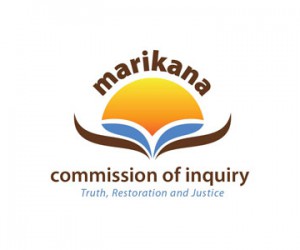The Marikana Commission of Enquiry into the violent Lonmin mining strike and related issues is due to start its work in Rustenburg with public hearings from October 1. The investigation will be led by retired Supreme Court of Appeal judge Ian Farlam and is expected to take four months to complete, Justice and Constitutional Development Minister Jeff Radebe said over the long weekend.
The investigation, for which an initial R22-million has been allocated by the Department of Justice, will probe events leading up to and including the clashes between police and striking miners which resulted in the death of 34 miners, and leaving many more injured on August 16. Ten people, including two policemen were killed in the week prior to that near Lonmin’s Marikana mine, in Rustenburg.
Radebe told a press conference in Pretoria that advocates Pingla Hemraj and Bantubonke Regent Tokota would be members of the commission, which would be based in the Rustenburg.
The commission had been given the authority to independently investigate the roles played by Lonmin, the South African Police Service, the Association of Mineworkers and Construction Union, and the National Union of Mineworkers. It will also examine whether the roles played by the Department of Mineral Resources, or any other government department or agency, during the unrest, were appropriate and consistent with their duties and obligations.
The behaviour of individuals and groups would also come under the spotlight, as the commission determined whether they indirectly or directly promoted a situation of conflict or confrontation in the run-up to the violent outburst near the Marikana mine.
The Department of Justice and Constitutional Development has allocated an initial R22-million to ensure that the commission could become operational. But it expected that a further R44-million to R50-million would be required to enable the commission to operate effectively and fulfill its mandate.
The Marikana Commission of Enquiry (Commission) was appointed by President Jacob Zuma on August 23, a week after the violent clash and its mandate arising from the Terms of Reference, promulgated on 12 September 2012, is to investigate “matters of public, national and international concern arising out of the tragic incidents at the Lonmin Mine in Marikana, in the North West Province which took place on about Saturday 11 August to Thursday 16 August, 2012 which led to the deaths of approximately 44 people.
More than 70 persons were injured and about 250 people being arrested.
In terms of its mandate and scope, the commission is required to complete its work within a period of four months from the 12 September 2012 and submit interim reports and recommendations to Zuma each month prior to the final report. Its first interim report must be submitted on or before 12 October 2012 In this report the commission will have to give an overview of its time schedule in view of the given deadline of four months
The regulations will empower judge Farlam to designate any persons to assist the Commission in
any other capacity to ensure that it exercises its powers and functions effectively and efficiently. The judge has already designated the following as evidence leaders, advocates Mbuyiseli Madlanga, SC, Mathew Chaskalson, SC ,Geoff Budlender, SC Johannes Nxusana and Charles Wessley
Two more evidence leaders will be designated to assist the commission.
The evidence leaders will be assisted by a team of investigators “with the necessary skills and expertise”.
Their offices and venues for public hearings have been made available at the Civic Centre in Rustenburg by the Rustenburg Municipality.
The Department of Justice and Constitutional Development had allocated an initial R22-million to ensure that the commission could become operational. But it expected that a further R44-million to R50-million would be required to enable the commission to operate effectively and fulfill its mandate.






